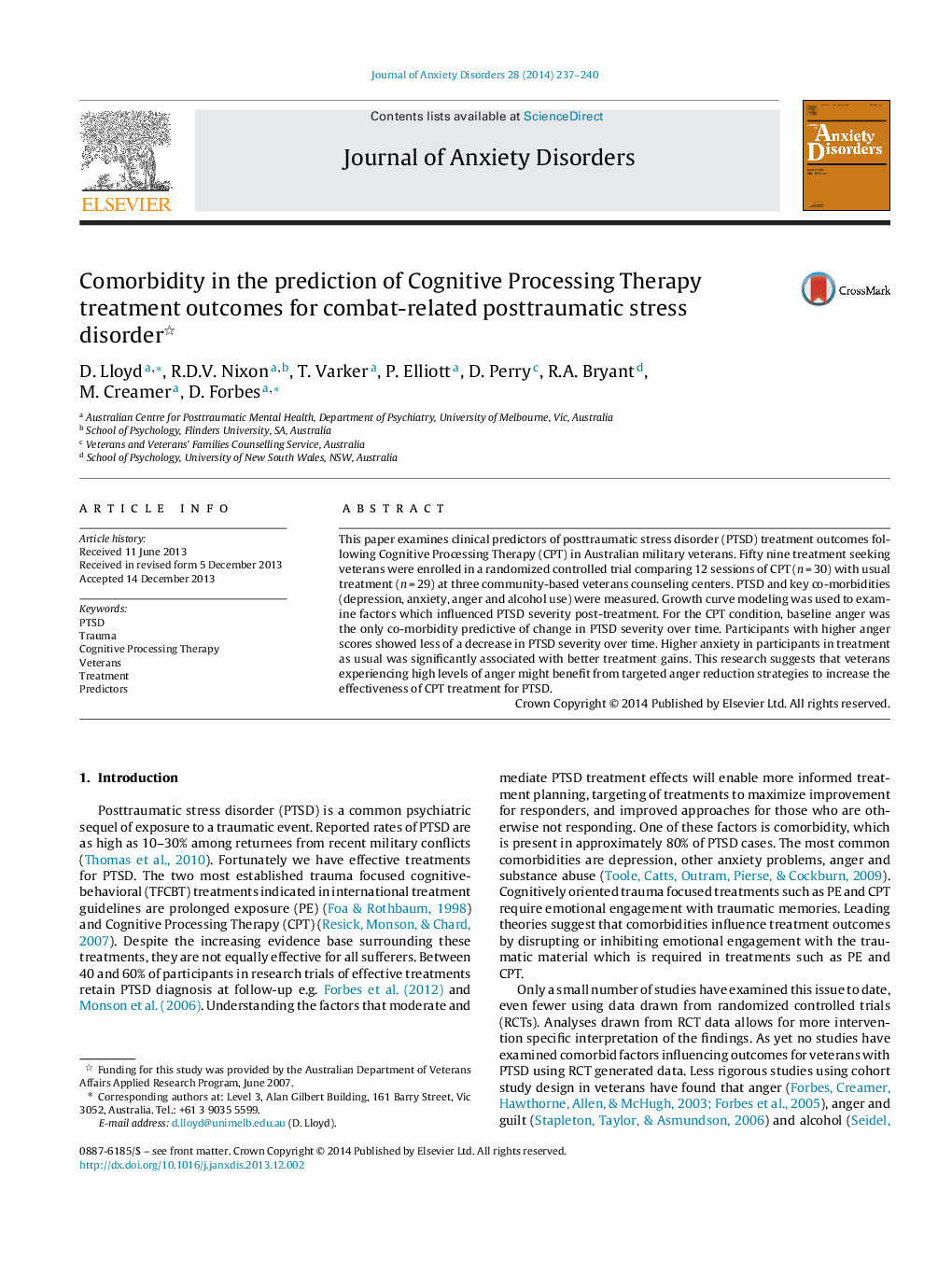| کد مقاله | کد نشریه | سال انتشار | مقاله انگلیسی | نسخه تمام متن |
|---|---|---|---|---|
| 909418 | 917282 | 2014 | 4 صفحه PDF | دانلود رایگان |

• Predictors of treatment outcomes for Cognitive Processing Therapy were examined.
• PTSD and comorbid depression, anxiety, anger, and alcohol were measured.
• The magnitude of CPT treatment outcomes was moderated by anger.
• More angry participants experienced less of a decrease in PTSD severity over time.
• Targeted anger reduction strategies may increase the effectiveness of CPT treatment.
This paper examines clinical predictors of posttraumatic stress disorder (PTSD) treatment outcomes following Cognitive Processing Therapy (CPT) in Australian military veterans. Fifty nine treatment seeking veterans were enrolled in a randomized controlled trial comparing 12 sessions of CPT (n = 30) with usual treatment (n = 29) at three community-based veterans counseling centers. PTSD and key co-morbidities (depression, anxiety, anger and alcohol use) were measured. Growth curve modeling was used to examine factors which influenced PTSD severity post-treatment. For the CPT condition, baseline anger was the only co-morbidity predictive of change in PTSD severity over time. Participants with higher anger scores showed less of a decrease in PTSD severity over time. Higher anxiety in participants in treatment as usual was significantly associated with better treatment gains. This research suggests that veterans experiencing high levels of anger might benefit from targeted anger reduction strategies to increase the effectiveness of CPT treatment for PTSD.
Journal: Journal of Anxiety Disorders - Volume 28, Issue 2, March 2014, Pages 237–240